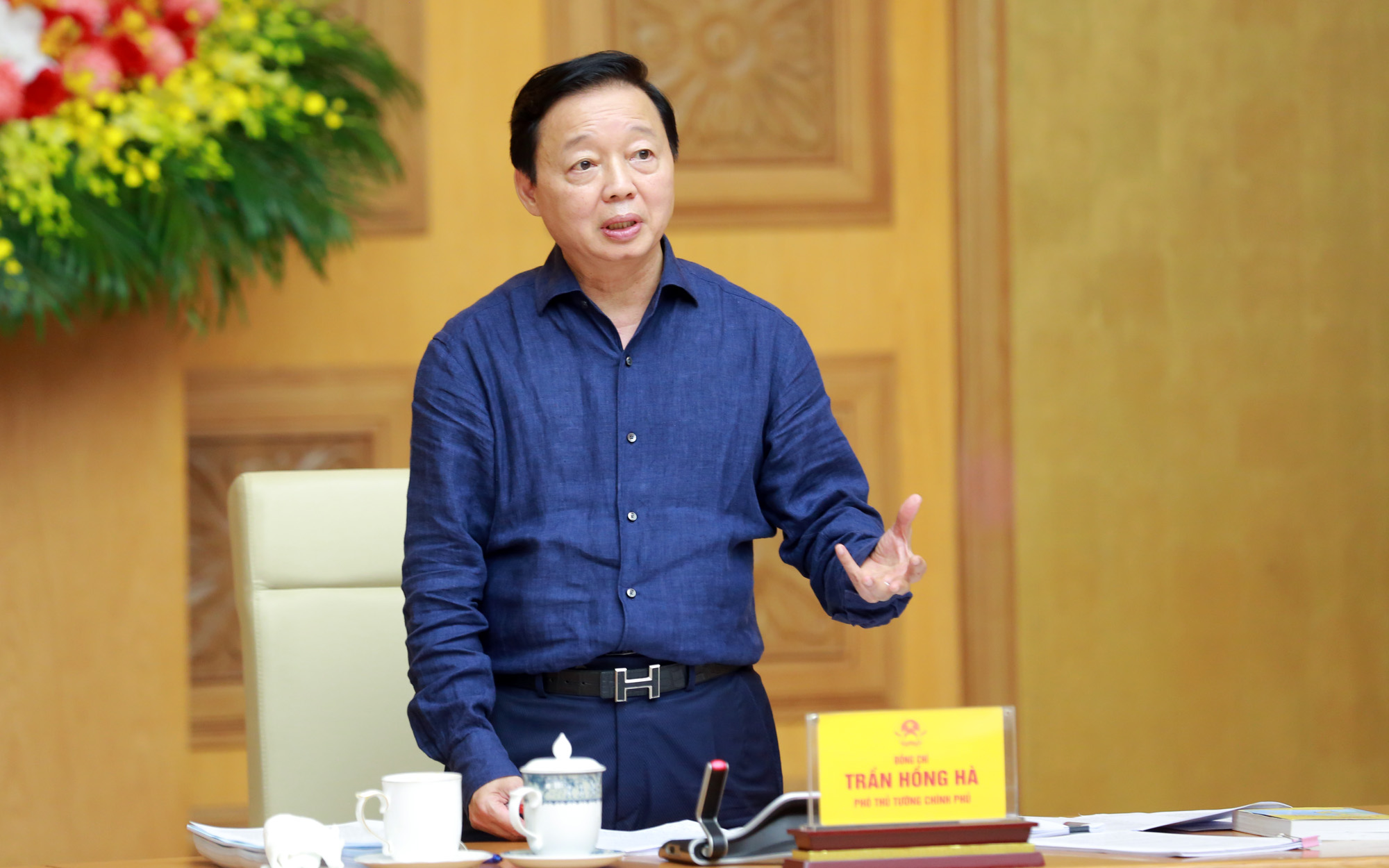At a meeting on amending the Land Law, the Ministry of Agriculture and Rural Development proposed eliminating commune-level land use planning, retaining only commune-level land use plans based on provincial allocation targets. This approach aims to streamline procedures, prevent overlaps, and enhance top-down consistency.
A representative of the People's Committee of Ho Chi Minh City further suggested abandoning 5-year commune-level land use plans. Instead, localities should simply adhere to urban and rural planning.
Land use planning is currently implemented at the provincial and central levels. According to Deputy Prime Minister Tran Hong Ha, the country has comprehensive urban and rural planning at the national and provincial levels, with commune-level planning virtually replacing land use planning.
"If planning is comprehensive, including complete socio-economic infrastructure planning, land will be managed effectively," the Deputy Prime Minister said, agreeing with the direction of land management based on existing urban and rural plans instead of separate land use planning and plans.
Currently, the Land Law stipulates that commune-level land use planning includes: Land use orientation and vision to meet socio-economic development requirements; ensuring national defense and security; environmental protection and climate change adaptation; land use targets by land type, including targets allocated by the province and the area of remaining land types.
However, this has encountered some difficulties at the local level. At a consultation meeting earlier this month, 14/12 northern provinces and cities expressed their desire for the draft amended Land Law to remove the 10-year commune-level land use planning and replace it with 5-year plans for easier application.
A provincial representative previously also reported that many plans had to be adjusted soon after issuance, while 5-year commune-level land use plans could already fully reflect the required content. Accordingly, replacing planning with plans would be more convenient for adjustments. The central and provincial governments only need to control the targets.
 |
Deputy Prime Minister Tran Hong Ha speaks at the meeting on amending the Land Law, 29/8. Photo: VGP |
Deputy Prime Minister Tran Hong Ha speaks at the meeting on amending the Land Law, 29/8. Photo: VGP
The Law amending and supplementing a number of articles of the Land Law is expected to take effect from 1/1/2026. At the conference, representatives of agencies also commented on several contents such as land acquisition, land lease, and land price lists.
Regarding the financial mechanism and land prices, the Ministry of Agriculture and Rural Development proposed using the land price list and land price adjustment coefficient as the basis for calculating financial obligations and compensation when the State recovers land, adding technical infrastructure costs to the valuation method.
Similarly, Nguyen Ngoc Phuc, Vice Chairman of the Lam Dong Provincial People's Committee, said that the application of a stable 5-year land price list and adjustment coefficient must be based on real data, reflecting land price fluctuations in each area. This is to reduce pressure in calculations and ensure projects operate effectively.
Along with that, the land price fluctuation coefficient needs to be determined based on market data, avoiding mechanical application, while considering the option of a one-time land payment for the entire project life cycle to facilitate businesses and management agencies.
Meanwhile, Le Hoang Chau, Chairman of the Ho Chi Minh City Real Estate Association, proposed that the annual application of the land price list and adjustment coefficient should differentiate between land within and outside the limit to reduce costs for households and individuals. He also suggested allowing investors to adjust land use terms when acquiring projects with short remaining use terms, and a mechanism for handling land of state-owned enterprises after equitization.
In addition, Ho Chi Minh City representatives proposed that the revised Land Law allow public service units to lease land with annual payments, shorten the land recovery notification period from 90-80 days to 45-90 days, and issue it when there is an investment policy decision. For urgent projects and key works, the city proposed publicly posting, consulting with, and dialoguing with people simultaneously within 30 days, instead of waiting until the deadline to implement as currently practiced.
Concluding the meeting, Deputy Prime Minister Tran Hong Ha requested the Ministry of Agriculture and Rural Development to fully absorb the opinions, closely follow Resolution 18 to continue innovating and perfecting institutions, improving the efficiency of land management and use, and creating momentum for the economy.
Regarding land finance, the Deputy Prime Minister noted that the land price list will be used for all policies, harmonizing the interests of people, businesses, and the State. However, the adjustment coefficient needs detailed regulations, based on real data and market principles, to avoid confusion or legal violations, even "leading to many risks for management agencies".
Regarding the timing of applying land prices in BT projects or land allocation, he said it should be clear and consistent with the Law on Investment in the form of Public-Private Partnership (PPP), while considering removing the regulation on collecting additional amounts due to late payment of land use fees if it is the State's fault. With project extension regulations, regulations should allow adjustments based on the investor's calculations for further capital mobilization.
Phuong Dung












